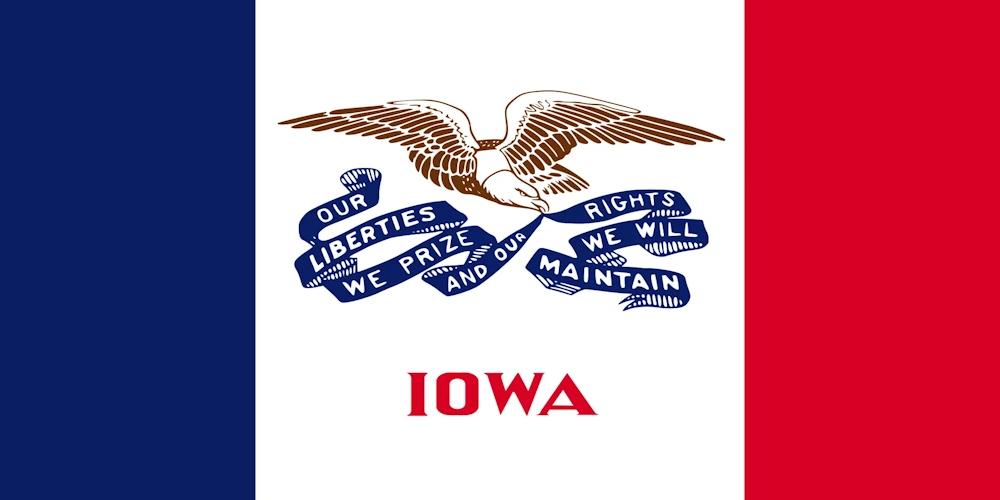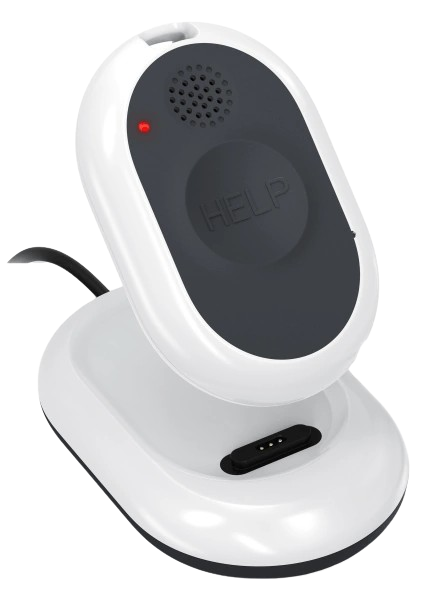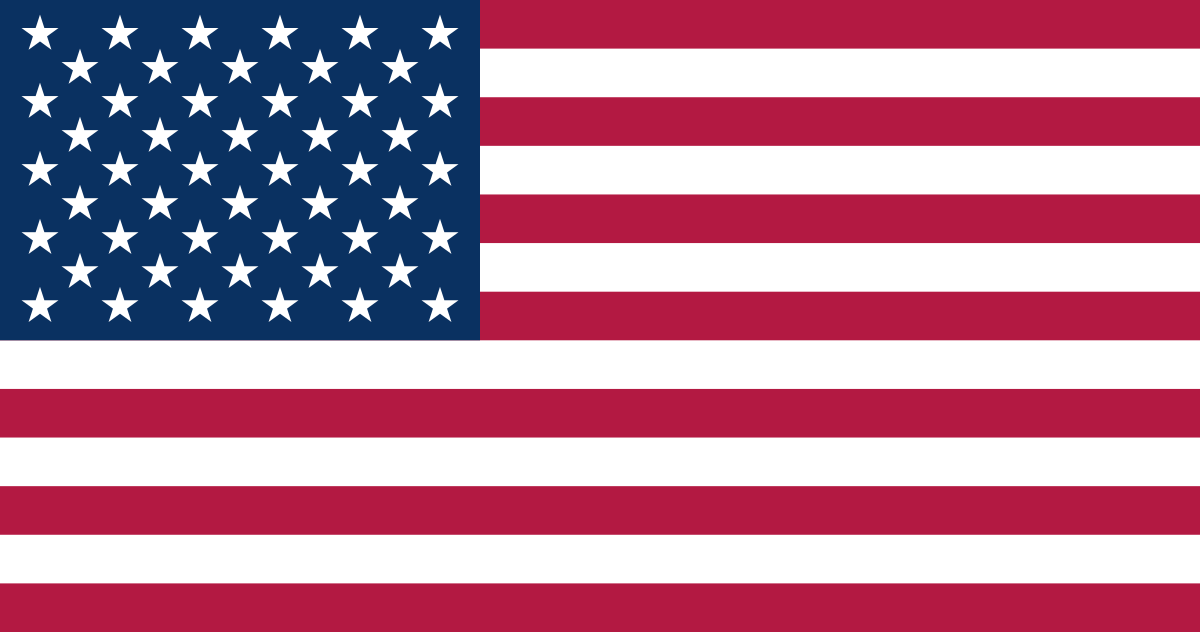In Iowa, lone workers are common across industries such as agriculture, utilities, healthcare, and maintenance. These individuals often perform their duties without direct supervision or nearby coworkers—leaving them more vulnerable in emergencies. Ensuring their safety requires a combination of regulatory awareness and practical safety measures.
Iowa operates its own OSHA-approved occupational safety and health program through Iowa OSHA, which is now part of Iowa Workforce Development. This state-run program enforces workplace safety standards that must be at least as effective as those set by federal OSHA.
On This Page
Our Guide To Lone Worker Safety Policy And Legislation In Iowa
Workplace safety in Iowa is governed by Iowa OSHA, under the umbrella of Iowa Workforce Development. While there is no lone worker-specific law, employers are still responsible under Iowa OSHA to protect employees from recognized hazards—including those associated with working alone.
This means employers must take proactive steps to assess and mitigate risks specific to lone working environments. These responsibilities are rooted in the General Duty Clause of OSHA, which requires employers to provide a safe and healthful workplace.
How Iowa Defines A Lone Worker
Iowa does not provide an official definition of “lone worker,” but the term is generally used to describe an employee working without direct supervision or immediate access to assistance.
Typical lone worker roles in Iowa include:
- Agricultural workers operating equipment in remote fields
- Utility or telecom technicians working in the field
- Healthcare providers conducting home visits
- Night-shift cleaners or warehouse workers
- Security personnel on solo assignments
- Maintenance or service staff working off-hours or in isolated spaces
These roles may face increased risks due to delayed response times in the event of an emergency.
Employing A Lone Worker In Iowa
Employers in Iowa must take lone worker safety seriously by addressing potential hazards and implementing protective measures, even in the absence of a specific regulation. Compliance with Iowa OSHA requires a thoughtful approach tailored to each job role and work environment.
Recommended best practices include:
- Risk Assessments: Evaluate hazards specific to the work being done alone.
- Communication Systems: Implement regular check-ins via phone, radio, or lone worker safety apps.
- Training and Emergency Preparedness: Equip employees with the skills and knowledge to handle emergencies.
- Use of Safety Technology: Deploy mobile apps or wearables that offer GPS tracking, panic alerts, and fall detection.
- Documented Policies: Create written procedures outlining when lone work is permitted and what safety protocols are required.
These strategies help minimize risk and demonstrate a commitment to workplace safety.
Learn How You Can Protect Your Employees With Loneworker.com

With Loneworker.com you can be equipped with the knowledge and the means to protect your employees and protect your business. Contact us today to learn more about how Loneworker.com can protect you and your employees.
How The Safe Lone Worker App Can Protect Iowa Lone Workers And Employers
In both Iowa’s rural landscapes and urban job sites, maintaining real-time visibility of lone workers is critical. The Safe Lone Worker app offers advanced features such as GPS location tracking, automated check-ins, fall detection, and emergency alerts, helping employers stay connected to isolated staff.
This digital solution supports compliance with Iowa OSHA by enabling proactive oversight and fast emergency response—key components in any effective lone worker safety plan.
Iowa Lone Worker Policies
Iowa manages its own OSHA-approved occupational safety and health program through Iowa OSHA, which now operates under Iowa Workforce Development. While the state does not have a law specifically focused on lone workers, the General Duty Clause still requires employers to protect employees from foreseeable risks—regardless of whether they are working alone or in teams.
For the most up-to-date regulatory guidance, visit Iowa Workforce Development and OSHA. This guide is intended for general informational purposes and should not be considered a substitute for legal or regulatory advice.
Iowa Lone Worker Resources
OHS Contact Centre
- 1-866-415-8690
CDC / NIOSH
- 800-232-4636

Affordable Monitoring For Lone Workers In Iowa

-
 Monitoring Your Employees' Safety
Monitoring Your Employees' Safety
-
 GPS Tracking And Monitoring
GPS Tracking And Monitoring
-
 Man Down Panic Alerts
Man Down Panic Alerts
-
 24/7 Protection Anywhere
24/7 Protection Anywhere
Lone Worker Legislation
Lone Worker Safety Policies And Legislation By State
-
 Alabama State Safety Policies And Legislation
Alabama State Safety Policies And Legislation
-
 Alaska State Safety Policies And Legislation
Alaska State Safety Policies And Legislation
-
 Arizona State Safety Policies And Legislation
Arizona State Safety Policies And Legislation
-
 Arkansas State Safety Policies And Legislation
Arkansas State Safety Policies And Legislation
-
 California State Safety Policies And Legislation
California State Safety Policies And Legislation
-
 Colorado State Safety Policies And Legislation
Colorado State Safety Policies And Legislation
-
 Connecticut State Safety Policies And Legislation
Connecticut State Safety Policies And Legislation
-
 Delaware State Safety Policies And Legislation
Delaware State Safety Policies And Legislation
-
 Florida State Safety Policies And Legislation
Florida State Safety Policies And Legislation
-
 Georgia State Safety Policies And Legislation
Georgia State Safety Policies And Legislation
-
 Hawaii State Safety Policies And Legislation
Hawaii State Safety Policies And Legislation
-
 Idaho State Safety Policies And Legislation
Idaho State Safety Policies And Legislation
-
 Illinois State Safety Policies And Legislation
Illinois State Safety Policies And Legislation
-
 Indiana State Safety Policies And Legislation
Indiana State Safety Policies And Legislation
-
 Iowa State Safety Policies And Legislation
Iowa State Safety Policies And Legislation
-
 Kansas State Safety Policies And Legislation
Kansas State Safety Policies And Legislation
-
 Kentucky State Safety Policies And Legislation
Kentucky State Safety Policies And Legislation
-
 Louisiana State Safety Policies And Legislation
Louisiana State Safety Policies And Legislation
-
 Maine State Safety Policies And Legislation
Maine State Safety Policies And Legislation
-
 Maryland State Safety Policies And Legislation
Maryland State Safety Policies And Legislation
-
 Massachusetts State Safety Policies And Legislation
Massachusetts State Safety Policies And Legislation
-
 Michigan State Safety Policies And Legislation
Michigan State Safety Policies And Legislation
-
 Minnesota State Safety Policies And Legislation
Minnesota State Safety Policies And Legislation







